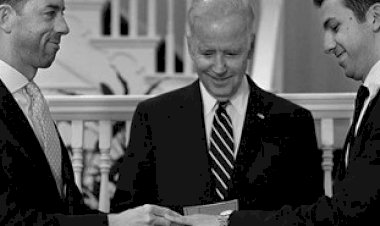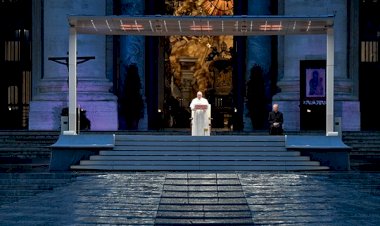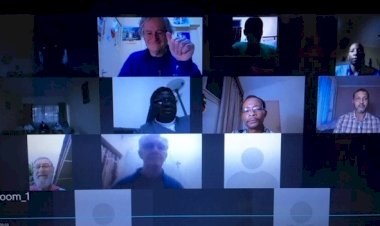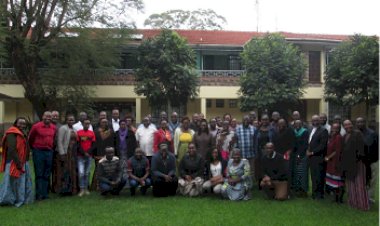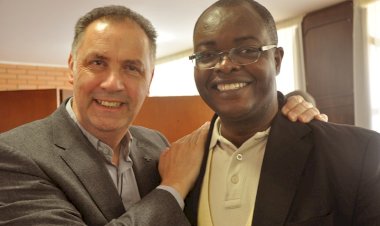The Sadness of Rising Atheism and Apologetics begins at home
Christians and other believers are clearly losing the popular conversation, given the widely-reported increase of atheism
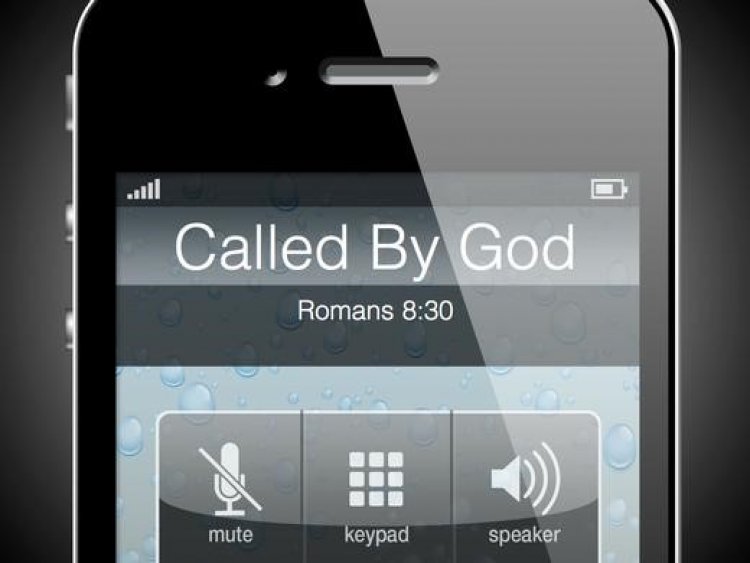
The Sadness of Rising Atheism
We were made for eternal union with God and our souls ache for him, whether we realize it or not!
It’s one of the oldest recurring conversations known to man. What does it mean for a human person to be truly happy, and what does this tell us about his nature? Amidst a classroom debate, a student of mine remarked that Christians and other believers are clearly losing the popular conversation, given the widely-reported increase of atheism.
“That may be true,” I replied, “and it saddens me.”
“Why are you sad about that?” came the reply. The lively conversation that followed touched on some of the great questions considered by numerous philosophers and theologians through the centuries, who thought a lot about why humans need more than merely material satisfaction.
“Is it possible that a life devoted solely to the pursuit of bodily pleasures can really satisfy a human being?” I asked my students.
“I don’t think so,” one young man answered, “because then we couldn’t have other things we want, like committed relationships and other things like that.”
Indeed, if we lived our lives solely focused on the pleasures of the next tasty buffet, the next drink, the next one-night-stand, we would become miserable, undisciplined, and shallow slaves to animal inclinations. We would miss the wider range of things, the deeper things, that humans crave.
“What about fame, power and money? Could a life solely devoted to one or more of such ‘successes’ really satisfy us?”
“I don’t think so,” another student replied. “There are too many unhappy people who have lots of money.” Indeed. One need only glance at the list of “confirmed suicides” on the Wikipedia article, “List of Suicides in the Twenty-First Century,” to see that notoriety, beauty, athleticism, money, musical talent, and influence are no cure for the underlying pain of so many human souls.
How often do we hear of broken relationships, anxiety, and depression among the famed elite? What about the searches for peace and transcendence through meditation and religious trends among those who seem to have it all? Like the exclusive focus on fame or bodily pleasure, the pursuit of self-centred success leaves a soul closed within itself.
No one knows this better than those who have undergone a profound conversion. There is a great deal of talk about Kanye West, one of the most popular and influential artists in the world, who professes to having given his life to Christ. With a net worth of well over two hundred million dollars and a litany of public scandals on his record, West’s recent declaration that Christ has changed his life is turning millions of heads. We pray that his conversion continues and strengthens, and that he can lead many more souls to the Lord.
But even if you’re not a pop star, feeding the soul with food, drink, sex, money, power, and fame as if they were the end for which we were made eventually ruins the soul that craves to run on something more than thrills and emotion.
“A man’s life does not consist in the abundance of his possessions” (Luke 12:15).
My students, at least the ones who spoke up, were largely in agreement on the point. But they weren’t done yet.
“Well, Bill Gates has a lot of money and gives a lot of it away. But he doesn’t believe in God.”
While he may not have been right about Gates’s faith, this student touched on something important.
Turning outward in an effort to find a greater meaning in one’s life is a profound and positive shift in focus. It suggests a natural desire, available even to those with little or no religious faith, to transcend oneself and live for others.
Such generous attempts to better our world through giving, while necessary and laudable, are still not enough to satisfy our deepest desires. The painful news about our worsening political and social situation, points to deep divides in understanding the nature of human persons, our history, our purpose, our true good. Even some in the Church seem to have replaced the core of our self-understanding with “causes” and activism to the neglect of the transcendent, to which the soul must look to truly understand itself. Made in the “image of God,” we are equipped to discern the voice of God calling us to union with him, whose image we bear (CCC 1706).
We want joy. We want to love. We want to know. Bodily pleasure, fame, power, money, and even acts of generosity towards those most in need can easily distract us from what ultimately reveals who and what we are made for. We were made for eternal union with God and our souls ache for him, whether we realize it or not. “The desire for God is written in the human heart, because man is created by God and for God; and God never ceases to draw man to himself” (CCC 27).
“Why do you think I am sad about the growing number of atheists in our culture?”
Several students raised their hands.
“Because after denying God’s existence, they are left only with things that cannot really make them happy.” The bell to end the class rang.
As I walked by the crucifix on the wall near the door, the sadness of contemplating the possible loss of so many souls was followed by the joy that there are others for whom the light of truth still shines. For Christians, even sadness is not without hope. Since everyone is really searching for God, our witness to him as known in the face of Jesus Christ is always good news, even for those who do not yet recognize him (2 Corinthians 4:6). We have a lot of work to do.
- MARK A. MCNEIL - 11/4/2019 from the TOBSA website
Apologetics Begins at Home - by John Clark - Sep 17, 2021
Atheism is clearly on the rise - a point highlighted recently when Harvard University appointed an atheist as the school’s chaplain. This should not come as a surprise. Atheism has good marketing. Like cigarette smoking in the 1950s and 1960s, atheism is marketed as cool.
After all, who doesn’t want to be more like atheist Ricky Gervais (comedian)? Or Penn Gillette (famous magician)? Or Daniel Radcliffe (guy who plays a magician on TV)?
Atheism is also advertised as the official religion of “smart” people. Theists like Galileo, da Vinci, Copernicus, Vivaldi, Michelangelo, Leibniz, Dante, Newton, Milton, Pasteur, Kepler, Farraday, Boyle, and Kelvin are seen as try-hard posers in comparison.
According to atheists, the smart people are the "Four Horsemen" of New Atheism: Daniel Dennett, Christopher Hitchens, Sam Harris, and Richard Dawkins.
Atheism is further marketed as “new.” Madison Avenue would be proud. Because for all the things that atheism is, new it isn’t. Whenever someone claims to have a “new” argument for atheism, I make sure to listen to it or read it. As a Catholic apologist, that would provide me a new concept to have fun dismantling, or at least attempting to do so. But without exception, I walk away disappointed, because—as it turns out—it is inevitably some version of an argument made centuries prior. “New” atheism isn’t just old; it’s moldy. It might be re-packaged, but it’s hundreds of years past its expiration date.
Atheism and the Breakdown of the Family
In our current climate, atheism also has the wind at its back for another reason: the breakdown of the family. In his 1999 book Faith of the Fatherless: The Psychology of Atheism, Dr. Paul C. Vitz argues that there often exists a connection between the absence of a supportive father and the subsequent embrace of atheism.
Vitz’s book was criticized for cherry-picking certain atheists and committing the post hoc, ergo propter hoc fallacy. Vitz, however, was not suggesting a universal—that all children of negligent or abusive fathers grow up to be atheists. In fact, Vitz includes the biographies of those grown children who do not. Yet, especially for his observations about children of abusive fathers—such as Stalin and Mao—the connection between abusive fathers and what Vitz terms “political atheism” should not be dismissed. If a child’s impression of God is even slightly based on his or her father—for better or for worse—Vitz’s case seems intuitive. Since the release of his book, other studies have illustrated that Vitz was perhaps more correct that he might have first thought.
Also, it is not simply the actions of fathers, but of both parents that influence one’s belief about God. For instance, a 2016 study by the Public Religion Research Institute concluded that “Americans who were raised by divorced parents are more likely than children whose parents were married during most of their formative years to be religiously unaffiliated (35% vs. 23% respectively).”
A Child's Homelife and Belief in God
Why is that? Why is there such a strong link between parental involvement and one’s notion of God? Perhaps it is this: Atheism looks at the universe and concludes that a loving Being was not necessary or involved in its origin. For a child, the family forms his or her first universe. But if he or she looks around and finds no such loving being in that first universe, it can create an impact that lasts a lifetime. My universe required no loving Being; maybe the universe doesn’t either. A person’s home life in childhood is not the sole determinant of his belief in God, but it is hugely influential.
Death, divorce, and desertion of parents can shake a person’s notion of God. And what of the ‘Four Horsemen’ on this point? Sam Harris’ parents divorced when he was two years old. Daniel Dennett was five years old when his father died in a plane crash. Richard Dawkins was sent away to boarding school where he was sexually molested at age nine. Christopher Hitchens’ father was an alcoholic; his mother later committed suicide. Death, divorce, and desertion. That is the sad tale of the ‘Four Horsemen’.
What is the Lesson Here for Catholic Parents?
In the world of apologetics, parents matter. To the degree that apologetics is rooted in the notion that God loves you, parents are an apologetic. The family is an apologetic. Clearly, we need to teach our children formal apologetics—that much is sure. The slick marketing and lies of atheism must be overcome. But lies—especially those lies that deny God’s love—can be overcome with the presence of love.
Apologetics begins in the family. The domestic church of the family is a domestic universe that affects all the universe. Whatever methods and materials we use for teaching apologetics, we must remember that an apologetics rooted in love is the apologetics that lasts.
Looking for apologetics resources? Check out Credible Catholic's 7 Essential Modules, prepared for middle and high school classrooms. A beta test survey at a California HS (2017) showed 97% of the students stated, the 7 Essential Modules improved, or greatly improved, their faith. A 2020 beta test showed the same statistics. Access the modules here!
- John Clark is an author and speechwriter. His first book Who’s Got You? reached #1 in the Amazon Kindle “Fatherhood” category and his new book How to Be a Superman Dad in a Kryptonite World, Even When You Can’t Afford A Decent Cape was just released by Guiding Light Books. He has written hundreds of articles and blogs about Catholic family life and apologetics in such places as Magis Center, Seton Magazine, Catholic Digest, and Homiletic and Pastoral Review. A graduate of Christendom College, John and his wife Lisa have nine children and live in Virginia.










